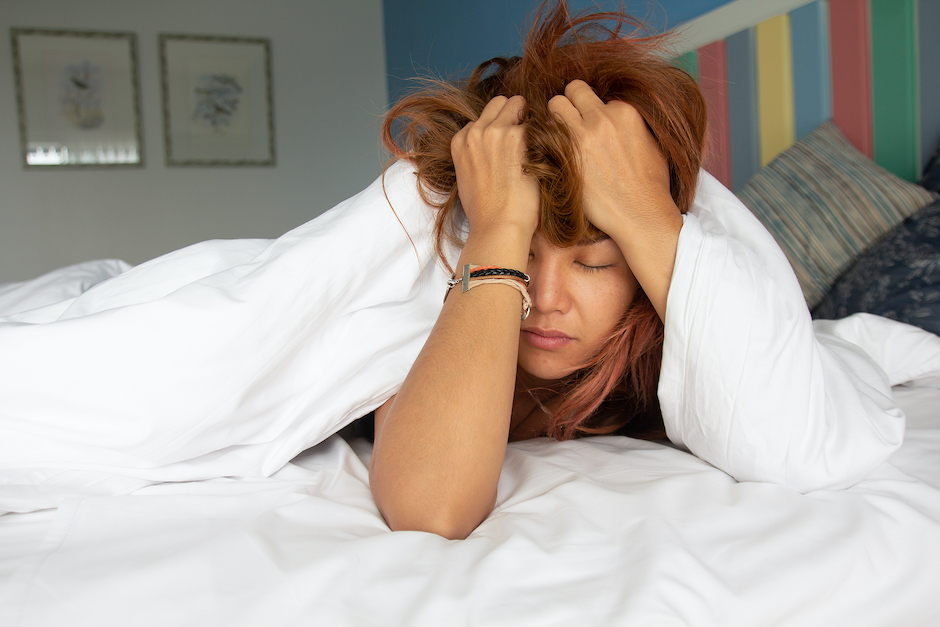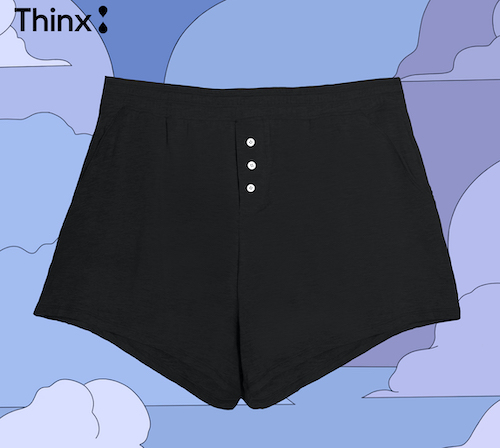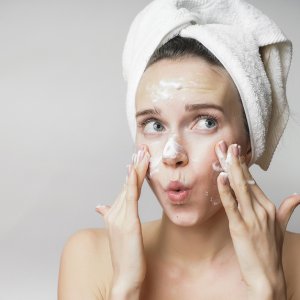As if cramps, mood swings, fatigue, and insatiable food cravings aren’t enough, you may have noticed that you don’t seem to sleep well around the time of your period. Well girls, you’re not alone. There are lots of ways your period affects sleep. While there isn’t always much we can do, there are some things we can help.
Lower Hormone Levels
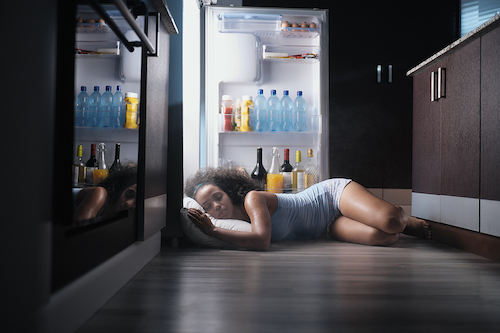
After ovulation, a woman’s estrogen and progesterone levels naturally drop off. Since progesterone is a calming hormone, this can cause sleep disturbances. Many women note that they experience difficulty winding down and falling asleep, while others say they have trouble staying asleep during their periods. Additionally, low progesterone levels cause an increase in body temperature. This can also make it harder to fall asleep or even cause disruptive night sweats.
Low estrogen also contributes to sleep problems. Estrogen plays a major role in the production of serotonin. Serotonin is not only responsible for reducing stress and encouraging feelings of well being. Your brain uses serotonin to make the sleep hormone melatonin. So when estrogen levels drop just after ovulation, this decrease affects mood, concentration, stress levels, and sleep.
What you can do
Unfortunately, hormonal fluctuations are normal, and there isn’t much you can do about them. But you can take a few measures to minimize the discomfort.
- Avoid things that interfere with sleep, such as caffeine, sugar, excess salt and alcohol, during the time of your period.
- Get more exercise so you are naturally more tired.
- Turn a fan on to help combat feeling hot or having night sweats.
- Soak up some sunshine or consider taking a vitamin D supplement. Vitamin D helps regulate hormonal shifts and can actually help increase melatonin production to promote better sleep.
- Discontinue screen time at least an hour before bed to help boost your melatonin as well.
Cramps
Menstrual cramps range from uncomfortable to debilitating. For some, cramps peak during the nighttime hours. On top of that, many women suffer from migraines, headaches, and digestive issues, like constipation, bloating or diarrhea, during their periods.
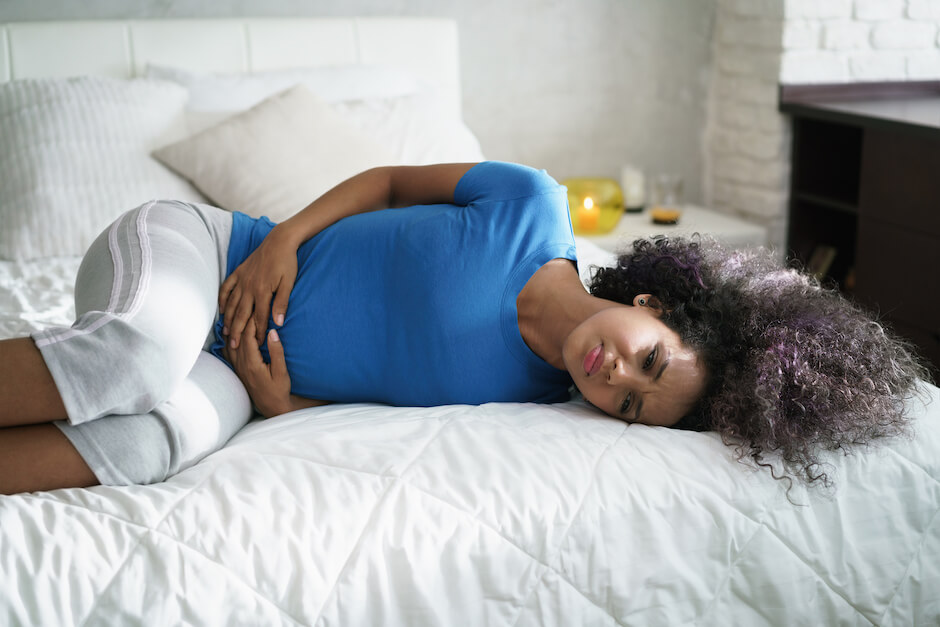
What you can do
While there is no quick fix for menstrual cramps, there are some ways you can alleviate or lessen their severity.
- Take your vitamins. Studies show that magnesium and vitamin B6 help decrease PMS cramps.
- Have sex. Sex and other forms of exercise increase endorphins, which not only improve mood, they may help decrease painful cramping.
- Eat right. Numerous studies show that eating more vegetables and fewer animal products, processed foods, and sugar decreases the severity of PMS symptoms.
- Get a massage.
- Try some essential oils. Check out this post for some Essential Oil Blends for PMS.
- For more suggestions, head here.
Concern About Leakage
There’s nothing worse than waking up in the middle of the night with soaked sheets. It’s truly one of the worst ways your period affects sleep. Some women complain that they regularly leak through period products designed for the heaviest flow. And we know that ruined sheets are only half of the problem. The embarrassment and interruption of sleep are major issues to the women who have a heavy nighttime flow. Not to mention the added discomfort of bulky pads.
What you can do
I used to worry about leakage in the night, but not anymore. Since I started using Thinx period underwear, I no longer have to think about leaks in the day or nighttime. Thinx offers so many different styles and absorbencies to fit any body type with any flow. I am so excited that they recently launched period shorts. They’re just like regular pajama shorts, except they hold up to 4 regular tampons’ worth. They feel like comfy boxer shorts and will keep you protected all night. If you’re ready to get a better night’s sleep, give them a try! You can even get $10 off your first pair. And no worries, Thinx offers a 100% satisfaction guarantee, so what have you got to lose?
Still unsure about using Thinx? Check out my take on them.
